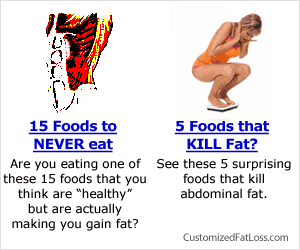How to Food Balance – Your Slimming Diet
When you undertake a slimming diet, it is of paramount importance to ensure that the food you eat are providing you with significant nourishment. If you consume a wide variety of foods from the food groups you should obtain optimum levels of each of the nutrients required for good health. Here we look at the primary food groups and how they relate to your diet and when trying to lose weight.
1. Starchy foods
Bread, potatoes, rice, cereals, pasta and other starches are staple foods in most people’s diet. Everything else revolves around them and contrary to popular belief, starchy foods are not fattening. Breads and cereals contain no more calories per gram and also have far less fats. Select breads which taste great without having to add jams and spreads. Eat Pasta and Rice with a tomato-based vegetable sources, avoiding adding any cheese, cream, butter or lots of oil.
2. Fruit, vegetables and salads
Always include a variety of fresh fruits and vegetables and salad leaves in your diet. Do not include too many dried fruit and avocados given dried fruit is higher in sugar and avocados are fairly high in fat. Avoid adding fatty salad dressings good examples are mayonnaise. Try to make your own salad dressings based on lime juice and low-fat yoghurts. Stay away from fried potatoes such as chips or baked potatoes with cheese sauces for example.
3. Milk, cheese and yoghurt
Ensure you keep to moderate amounts of low-fat dairy products and consume low-fat yoghurts. Low-fat cheeses, good examples are fromage frais, ricotta and cottage cheese are faverite and do not consume fatty milk shakes manufactured with whole milk.
4. Protein
Choose lean meats a good example is game, and make a point of trimming off all visible fat. Chicken with the skin removed, fish and pulses, lentils, split peas, and dried beans should be your preferred choices. Be sure to use steaming, grilling or baking rather than frying your foods. It is okay to eat nuts and seeds in moderation whilst avoiding high fat meat products such as sausages, pasties, pies and beef burgers.
5. Fatty and sugary foods
Try to use low-fat spreads wherever possible. Use oil during cooking sparingly, this applies to olive oil as well. The occasional sugary treat will do no harm to you, but just ensure you have them in moderation. Reducing the amount of fat in your diet is the best approach when you are dieting therefore avoid crisps, cakes, biscuits and pies as they contain a lot of hidden fats.
Jamie has been writing articles online several years and runs many websites. His latest IV Compatability Chart website which is a rich resource around drug compatablity is worth visiting. Pop along to http://www.ivmedicationcompatibilitychart.com/ and find out more.






-SMALL.gif)
